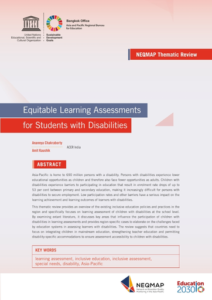What Laws Govern
What laws govern the Montreal centre for the learning disabled? These laws are designed to ensure that people with disabilities have the opportunity to participate fully in the community and in the workplace. The Office des personnes handicapees du Québec (OPHQ) oversees disability discrimination services and government policy. The Act respecting health and social services sets general principles relating to access and organization and outlines a number of rights and responsibilities for users of such services.
The EMSB is currently investing $2.2 million in the Laval region to provide early diagnosis. The program, named after former head of neurology at Ste-Justine Hospital, aims to help diagnose children as young as 18 months. Carmant, who was frustrated with diagnostic testing delays, created an online system that provides the same information as a questionnaire. Ultimately, this allows doctors to diagnose cases more quickly.
disability harassment at workplace
The UN Convention on the Rights of Persons with Disabilities (ADA) protects people with disabilities and sets out the types of measures countries must take to ensure that these rights are fully enjoyed by people with disabilities. Quebec has ratified this international convention, but the legislation does not include it. Regardless of the provincial law, the ADA convention is the foundation of the rights of people with disabilities. This convention has led to significant improvements in the lives of many people with disabilities and has also made it easier for the Centre to operate effectively.

What Laws Govern the Montreal Centre For the Learning Disabled?
The law does not protect all types of discrimination against disabled people. There are many areas of life where discrimination is legal and illegal. A great example of non-legal discrimination is public transport. Discrimination can be indirect or direct. For example, a pub might allow disabled children to drink in the family room, while a disabled adult may have to drink in the beer garden. However, it is not a law to treat disabled customers bad because they are disabled.
The ADA prohibits discrimination based on a disability, perceived disability, or association with a disabled person. However, determining whether a condition qualifies as a disability requires a case-by-case analysis. But, regardless of the definition, governments are still prohibited from discriminating based on a person’s disability. So, there are two types of disability: the “as a person” definition, which is commonly known as the American Disabilities Act, and the Americans with Disabilities Act (ADA).
If one partner has a disability, they may be forced to testify against the other in court. It is also possible for a common law spouse to testify against their partner in court. Fortunately, in Canada, civil unions are recognized by the Civil Code. Quebec now recognizes civil unions, which are legally binding and recognize both same-sex partners. However, it is important to note that a person can’t be in both a civilly married state and a conjoint de fact relationship at the same time.
